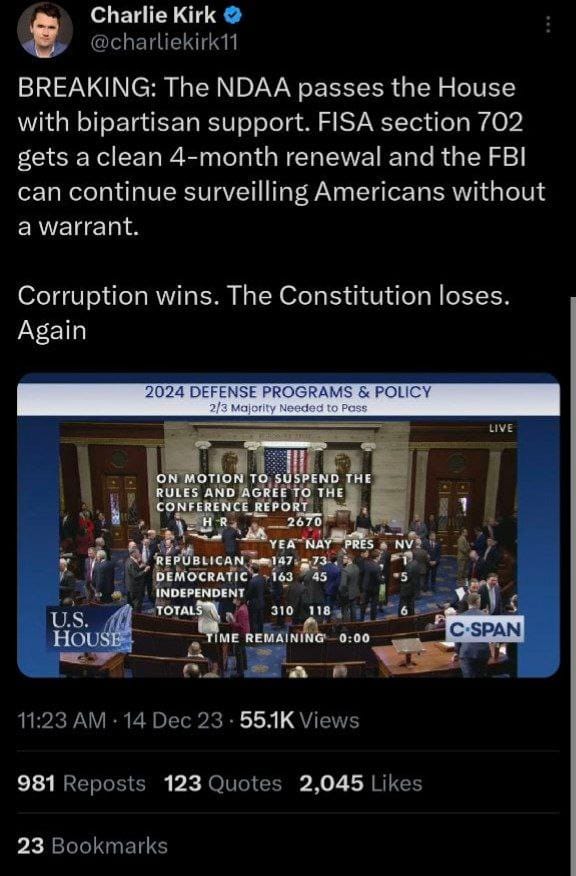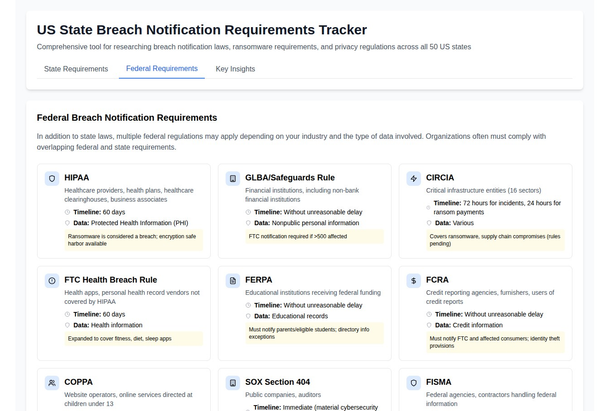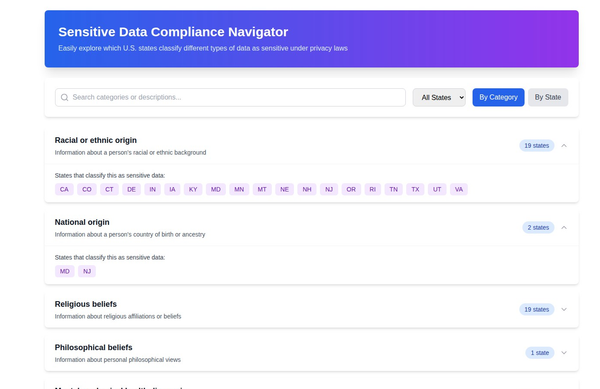Section 702 and NDAA

The recent decision by Congress to extend Section 702 of the Foreign Intelligence Surveillance Act (FISA) as part of the National Defense Authorization Act (NDAA) has been a topic of considerable debate and controversy. Here is an overview of the key aspects and perspectives on this issue:
"Time has proven, again and again, that America's intelligence agencies cannot be trusted. Sec. 702 expires at the end of this year. We've known this for five years, and yet the Senate has no time to debate this and wishes to simply extend it." @SenRandPaul


- Extension of Section 702: Section 702, initially aimed at surveilling non-U.S. citizens abroad for foreign intelligence purposes, has increasingly been used as a domestic surveillance tool. The recent legislative action involves a four-month extension of this authority, which is expected to potentially become a 16-month extension, as the U.S. government may secure a one-year extension from the FISA Court during this period.
- Usage and Concerns: The FBI and other agencies have utilized Section 702 to conduct warrantless searches of Americans' communications. This includes surveillance of protesters, journalists, members of Congress, and other U.S. citizens. Critics argue that this usage represents a significant overreach and violates constitutional rights to privacy. There have been instances where agents conducted warrantless searches for the communications of U.S. senators and other officials.
- Opposition and Criticism: Civil liberties groups, including the American Civil Liberties Union (ACLU) and the Brennan Center for Justice, have strongly opposed the extension, highlighting the lack of reforms and oversight in the current application of Section 702. They argue that the extension, passed without fundamental reforms, continues to permit unwarranted government surveillance, which they view as a violation of Fourth Amendment protections against unreasonable searches and seizures.
- Congressional Response: While the extension was passed as part of the NDAA, it faced opposition from various members of Congress and advocacy groups. The Congressional Progressive Caucus, among others, formally urged members to vote against the NDAA, citing concerns over both high defense spending and the inclusion of the Section 702 extension, which they view as a tool routinely used against Americans in violation of constitutional rights.
- Future Implications: The extension of Section 702 and its implications for domestic surveillance will continue to be a subject of debate. With the potential for further extensions and ongoing concerns about privacy rights and government surveillance, this issue remains at the forefront of discussions about national security and civil liberties.

This summary provides an overview of the current situation regarding Section 702 and the NDAA, highlighting the various perspectives and concerns surrounding this contentious issue. For a more detailed understanding and ongoing developments, following specific news outlets and updates from civil liberties organizations is advisable.







